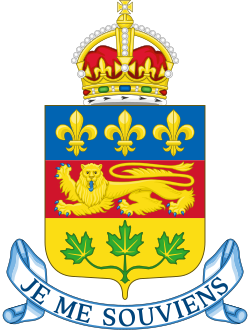This article has multiple issues. Please help improve it or discuss these issues on the talk page . (Learn how and when to remove these messages)
|
| History of Quebec |
|---|
 |
| Timeline |
| Territory of Quebec |
|
| Topics |
This section of the Timeline of Quebec history concerns the events between patriation of the British North America Act and the present day.